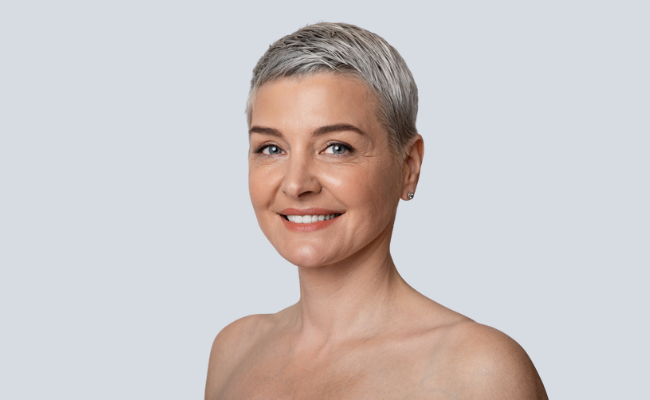Article: Anxiety, Depression and Brain Fog in the Menopause

Anxiety, Depression and Brain Fog in the Menopause
The tricky thing about mood changes and brain fog due to hormone changes is that they can sneak up on you for years before you realize what could be causing the problem. Anxiety, low mood, irritability and brain fog related to decreasing hormones can appear before menstrual periods show any big changes. This can make it really hard for women to realize what is making them feel so terrible and that they are not themselves. Medication and hormone therapy can play an important role and are a game changer for some women.
Exercise, spending time outdoors, and eating well offer significant benefits. It is also important to limit alcohol and caffeine intake. Additionally, making time for oneself, engaging in hobbies, and nurturing friendships and relationships are essential. Setting boundaries on work and social media can greatly enhance overall wellness. Exploring counselling and therapy can also be very supportive for some women.
Anxiety and Depression
Menopause doesn't cause depression or anxiety disorders, but the hormonal shifts and life stressors common during midlife can exacerbate existing conditions or trigger symptoms.
Factors contributing to anxiety and depression in menopause include:
- Hormonal fluctuations: Declining estrogen levels can affect serotonin and other mood-regulating neurotransmitters.
- Sleep disruptions: Hot flashes and night sweats often lead to poor sleep, increasing irritability, mood swings, and difficulty concentrating.
- Life stressors: Juggling career pressures, family dynamics, children reaching their teen years, caring for aging parents, and other midlife challenges can amplify stress and anxiety levels.
- Previous mental health history: Women with a history of postpartum depression or other mood disorders may be more susceptible to experiencing symptoms during menopause. This is because these times are similar windows of vulnerability due to hormonal chaos.
Solutions for Anxiety and Depression:
Solutions for anxiety and depression related to menopause generally fall into three categories, lifestyle, counselling and medication. All can be important and the value of each is particular to each woman.
Lifestyle Interventions:
There are also great benefits to be gained from exercise, being outdoors, getting good nutrition, keeping alcohol and caffeine consumption low, making time for oneself, hobbies, friendships and relationships and putting boundaries on work and social media.
Psychotherapy:
Exploring counselling and therapy can also be very supportive for some women.
Menopausal Hormone Therapy:
While not a primary treatment for anxiety or depression, hormone therapy can alleviate menopausal symptoms that contribute to low mood, such as hot flashes and sleep disruptions. Estrogen therapy may be as effective as antidepressant medications for mood disorders in some women.
Medications:
There are medications called SSRIs or SNRIs, which can help anxiety and depression and that can also reduce hot flashes and night sweats. These groups of medications may be the right choice for some women.
Seeking Professional Help:
Consult your family doctor if you experience feelings of sadness, hopelessness, loss of interest, or excessive worry.
Brain Fog in the Menopause
Brain fog is in fact considered by most women the most bothersome symptoms of menopause, above even hot flashes. Brain fog affects up to 62% of menopausal women and is characterized by difficulty concentrating, forgetfulness, and mental fatigue. It can significantly impact daily life, confidence and professional performance.
The Role of Estrogen
- Brain Energy Metabolism: Estrogen plays a vital role in regulating brain energy use, and its decline during menopause can lead to reduced energy levels. This is evident in brain scans, which show decreased brain activity in menopausal women compared to premenopausal women.
- Cognitive Function: Estrogen receptors are prevalent in brain regions responsible for memory and learning. Fluctuations in estrogen levels can impact verbal memory, attention, and executive function.
Managing Brain Fog in Menopause
Menopause Hormone Therapy:
Menopause hormone therapy can alleviate brain fog if the brain fog is from cognitive fatigue due to hot flashes, night sweats and disrupted sleep. Some research suggests that MHT may alleviate brain fog in other ways too, by restoring estrogen levels in the brain. More research is needed to confirm this potential benefit.
Lifestyle Interventions:
Improving sleep quality, engaging in regular physical activity, and eating a balanced diet rich in antioxidants and omega-3 fatty acids can support brain health.
Anxiety and Depression:
can also exacerbate brain fog and getting treatment for these can improve memory and cognitive ability generally.
Resources
Mental Health Therapists, Counselling and Supports
- Bounce Back is a free online program managed by CAMH with workbooks, videos and telephone sessions with a trained coach for the treatment of anxiety, stress and depression.
- Gabriella Tolic is a licensed psychotherapist in Oakville who has a special interest in women's health and menopause and offers both one-to-one sessions as well as support groups.
- Ask for Help Today is a website to help you find a registered psychologist.
- Mental Health Resources in Halton has lots of locally available resources and support groups.
- Help Guide is an independent non-profit web-based resource focused on mental health and wellbeing.
- Psychotherapy.ca has recommendations on books for a whole variety of mental health issues.
TED Talks
Neuroscientist Lisa Mosconi in her TED talk discusses how the menopause affects the brain and the role of stress in reducing estrogen.
Articles on Depression and the Menopause
Menopause and Depression from the Menopause SocietyYouTube
- The Social on CTV hosts Dr. Alison Shea Hamilton MD trained in women's health and psychiatry talking about Menopause and Mental Health.
- Dr. Sheryl Green, Associate Professor at McMaster in Psychiatry discusses Cognitive Behavioural Therapy for the Menopause.






Leave a comment
This site is protected by hCaptcha and the hCaptcha Privacy Policy and Terms of Service apply.